


Sleep is something we tend to value more as we age. The older we get, the more challenging it becomes to achieve a deep and satisfying sleep.
Most earphones are bulky and not designed for comfortable sleep. You’ve likely experienced the discomfort of boxed-in ears or woke up with a stiff neck because you couldn’t sleep on your side.
That’s where this article comes in handy! We’re here to help you find a solution. Keep reading to discover how!
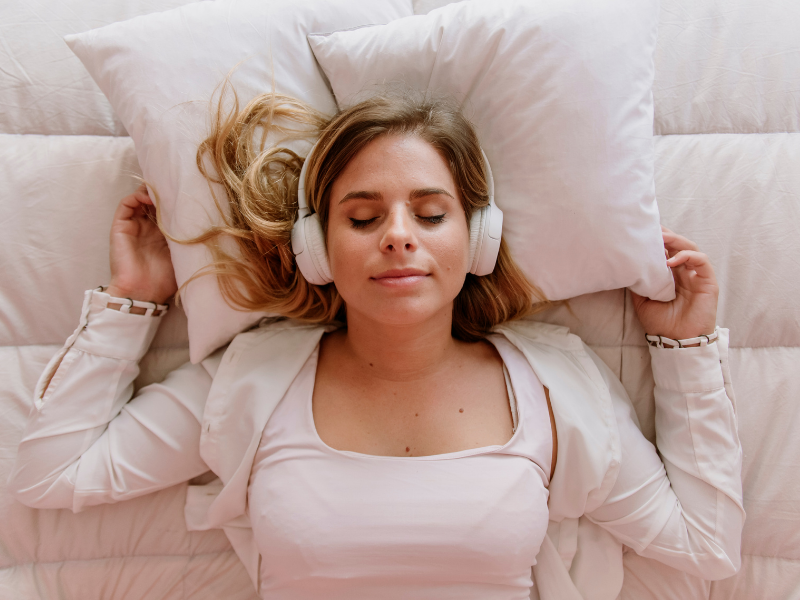
Many individuals opt to sleep with earbuds for various reasons, as it offers a unique blend of comfort and practicality. For some, soothing music or calming nature sounds can create a serene and relaxing atmosphere that helps ease them into a restful slumber. Others may find that blocking out external noises, such as street traffic or a snoring partner, is essential for achieving a peaceful night’s rest. Podcasts and audiobooks are also popular choices, providing an opportunity for late-night learning or entertainment without disturbing anyone else.
In our previous article about the practice of wearing earbuds while sleeping, we have addressed their utility as a potential substitute for traditional headphones. The points mentioned about earbuds are close to the effect of wearing headphones, yet there are some differences. As for the last ones, the main impact can be caused by the sound headphones produce or technical characteristics such as design and wires.
Sound cannot be too loud, because it will affect hearing abilities in general. It is better to listen to the music at a low level. Anyway, we are going to sleep, not have a party, aren’t we? There is a scientific fact: listening to loud music keeps our brain awake! For example, truck drivers listen to music if they have to drive during the night.
Regarding the design aspect, dealing with wires can pose challenges. Wired headphones may become entangled around your neck, leading to restlessness during sleep and potentially restricting your breathing. This could ultimately result in a loss of breath and, in some cases, even lead to fatal consequences.
The constant moisture and warmth inside your ears, when you wear headphones, can create a conducive environment for bacteria to grow, potentially leading to ear infections.
Wearing earphones for an extended period while lying down can lead to discomfort and pressure on your ears, making it challenging to find a comfortable sleeping position.
Listening to music while sleeping can make you less aware of your surroundings, which can be dangerous in emergency situations, such as a fire alarm or other unexpected events.
Relying on music to fall asleep faster can create a dependency on external audio sources for sleep, making it difficult to sleep without them in the long run.
Sleeping with headphones can limit the sleep positions in which you can comfortably sleep, as the headphones may dig into your ears or feel uncomfortable in certain positions.
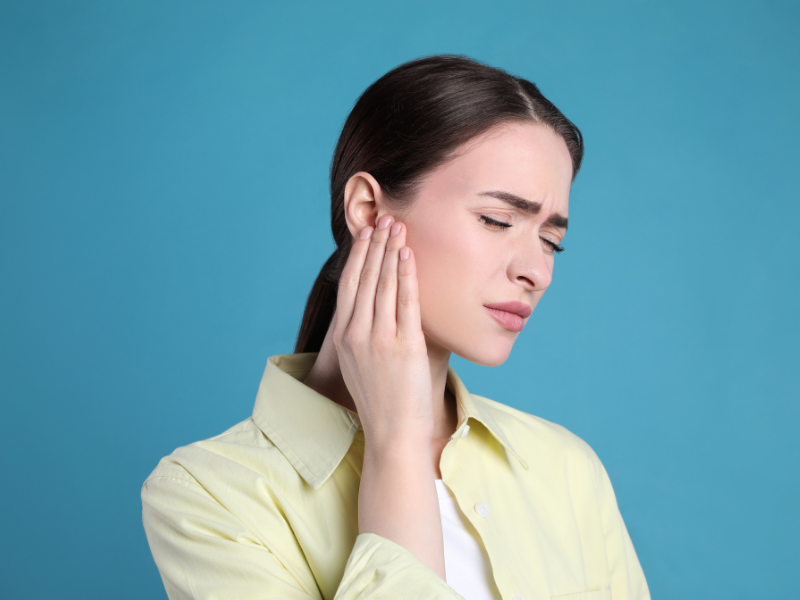
Now, let’s speak about the benefits of sleeping with headphones.
Numerous studies show that listening to the right kind of music helps relax your body and regulate your mood. It slows down your heart rate and breathing, allowing you to let go of the stresses of the day and fall into a deep sleep quickly. It can even help patients with insomnia and post-traumatic stress disorder (PTSD).
Headphones can block out ambient noise, allowing you to create a more peaceful sleep environment, especially in noisy or crowded places. This is the reason some individuals living in big cities use noise-cancelling headphones to fall asleep.
Listening to music can trigger the release of dopamine. When you engage with the content you enjoy, such as music, a podcast, or a movie, your brain also releases dopamine. This natural chemical can help reduce anxiety and stress levels, making it easier to relax and fall asleep.
If you share a room or living space with others, using headphones can provide privacy and prevent your sleep sounds from disturbing them.
If your partner snores loudly, using earbuds can help you ignore or mask the noise, improving your ability to sleep through the night.
People with tinnitus (ringing in the ears) can benefit from using earbuds to play masking sounds that drown out the ringing and improve the quality of sleep.
Unlike traditional, external speakers, earphones provide a consistent audio experience even if you shift positions in bed.
This cannot be considered a useful article if there are no life hacks in it. We’ve got something for you, read carefully!
As you can tell by its name, The Original Pillow With a Hole has a 4-inch x 4-inch hole in the middle to provide just the right amount of space for one of the ear cups to go through. Don’t forget to pull the wires through the hole.
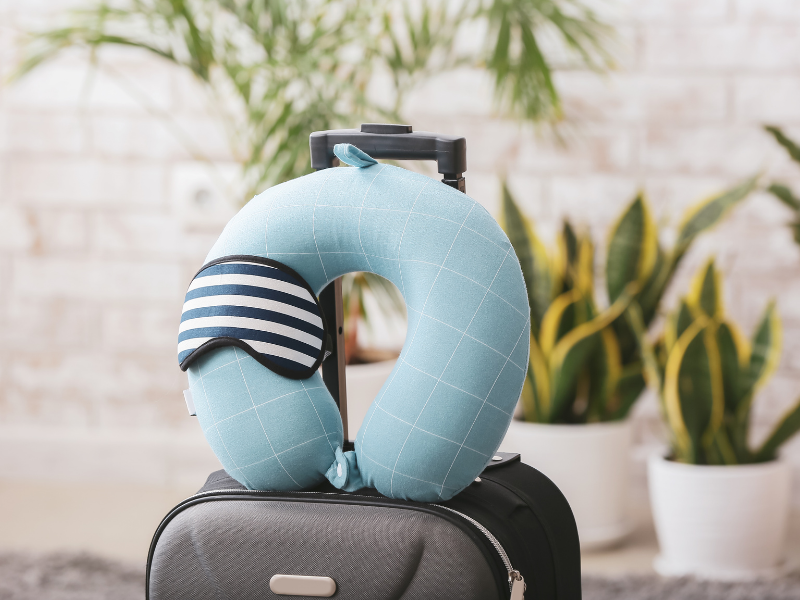
This is the best friend of people on the go. It can be used to relieve pressure on the headphones in two ways. One is when you’re sleeping upright or sitting down, and the second is when you sleep on your side.
Travel pillows snuggly fit around your neck to give your chin and jawline an area to fall and rest on. It will not come in contact with your headphones so pressure while sleeping won’t be a problem.
Much like the pillow with a hole, travel pillows also have a crater in the middle where your headphones could easily slot in. This is a great and innovative way to sleep on your side while wearing headphones.
Typically, these headphones have a low profile and don’t protrude from the ear so that when you turn to the side, you feel nothing pressing against your ear.
There are a few types of headphones in this category.
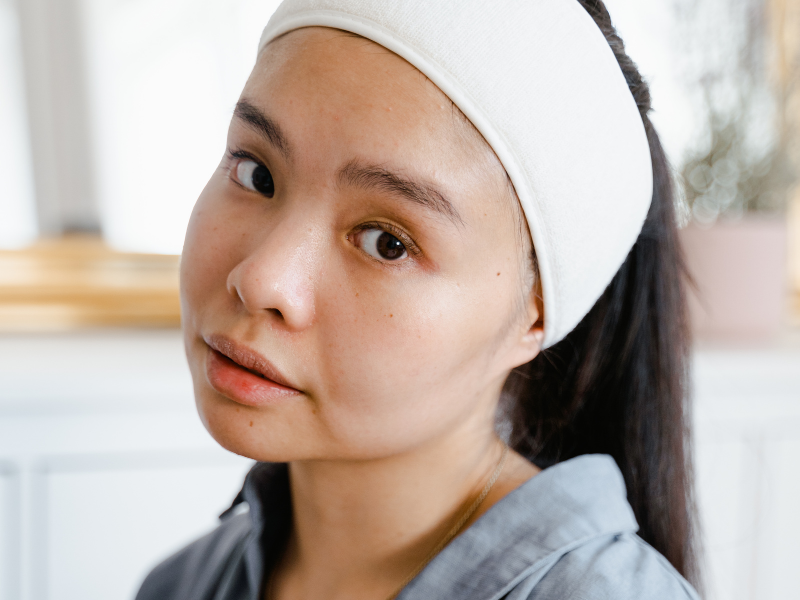
These look like a regular sports headband that’s made of fabric and wraps around the head, but they have a pair of ultra-slim, padded speakers inserted inside. The fabric can be washed, but always remember to remove the speakers first.
Popular brands include:
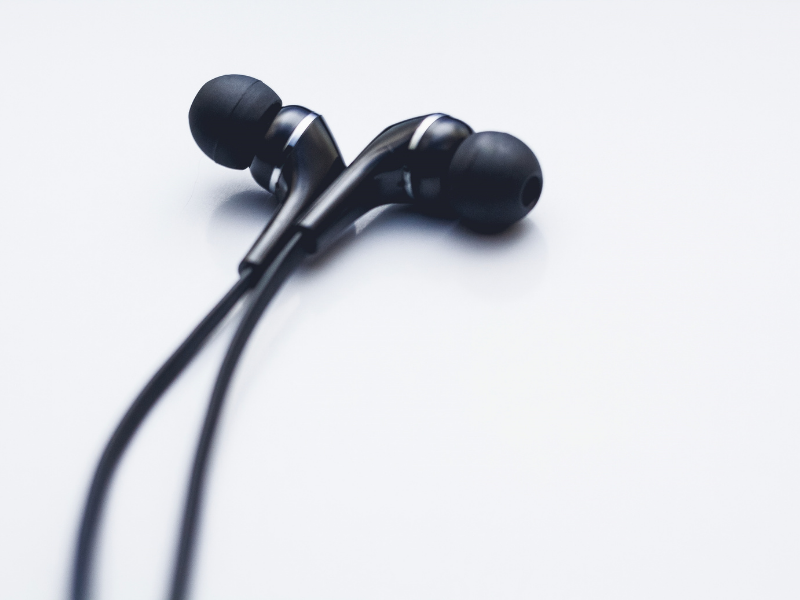
They usually have soft silicone tips that follow the shape of your ears so that you barely feel a thing. These were designed especially for people who want to sleep with headphones on.
Popular brands include:
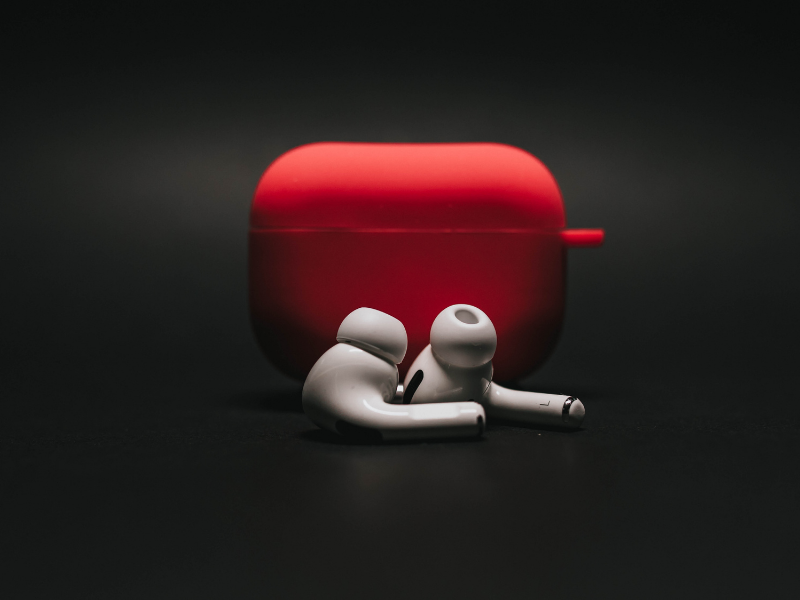
These headphones connect to your devices via Bluetooth, eliminating the hassle of tangled wires. They come in various forms, including earbuds, headbands, and even sleep masks with integrated speakers. Bluetooth sleep headphones offer the freedom to move around without being tethered to a device.
Popular brands include:
These are not traditional headphones but are designed to be placed inside or under your pillow. They produce a sound that is audible only to the person resting on the pillow, so they won’t disturb a partner. Pillow speakers are a great option if you don’t like wearing anything in or on your ears.
Popular brands include:
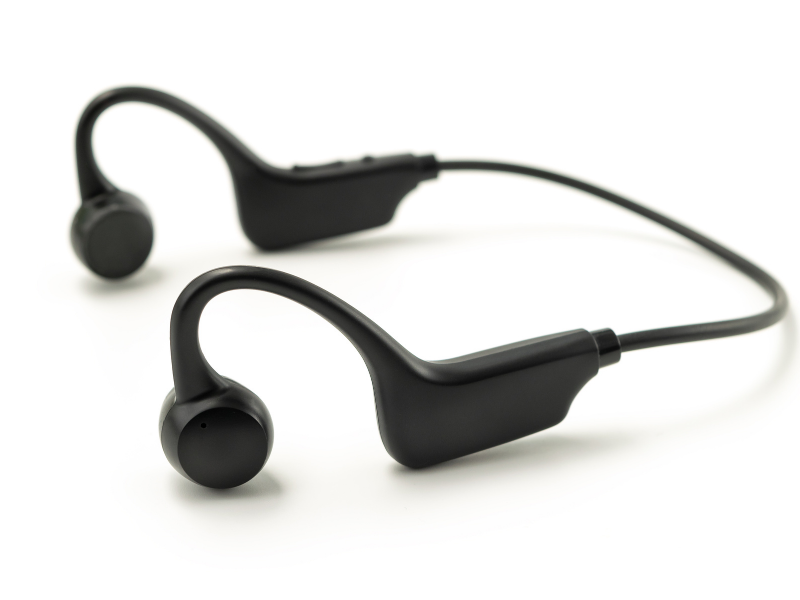
Bone conduction headphones sit just in front of your ears and transmit sound through vibrations in your cheekbones or jawbone. They don’t cover your ears, allowing you to hear ambient sounds while listening to your preferred audio, making them a safer choice if you need to remain aware of your surroundings.
Popular brands include:
When it comes to optimizing quality sleep and comfort, many individuals seek alternatives to sleeping with earbuds on. One popular alternative is the use of white noise machines or apps that generate soothing sounds like rainfall, ocean waves, or gentle breezes. These ambient sounds can drown out unwanted noise and create a relaxing environment conducive to sleep.
If you’re looking for a convenient solution, we recommend trying our sleep app, ShutEye. ShutEye offers a wide range of sleep sounds and relaxing music meticulously designed to promote a restful night’s sleep. With customizable features and a user-friendly interface, it’s a great choice for those seeking a peaceful and headphone-free sleep experience.
Another option is the utilization of specialized sleep earplugs designed to reduce external noise while remaining comfortable during the night. Additionally, some people explore wireless or bone conduction earphones mentioned above that are specifically designed for better sleep, as they are less intrusive and more comfortable than traditional set.
Alright, we have talked enough for today. Now it is time to put your earphones on and listen to the sounds you like! One more thing I wanted to mention, if you struggle with finding and selecting sounds for your sleep, ShutEye® is the thing you need.
Indulge yourself with the most calming, relaxing, and authentic sounds. Good night and sweet dreams!